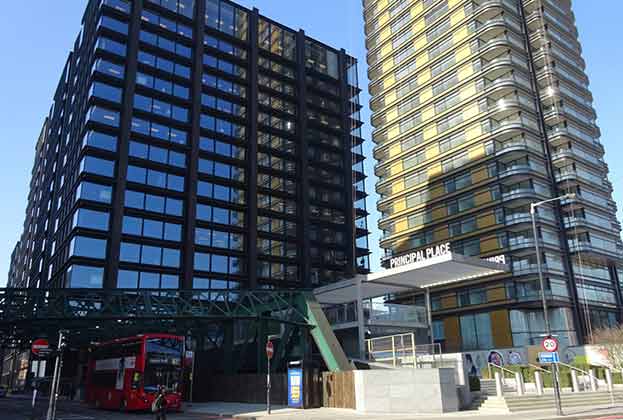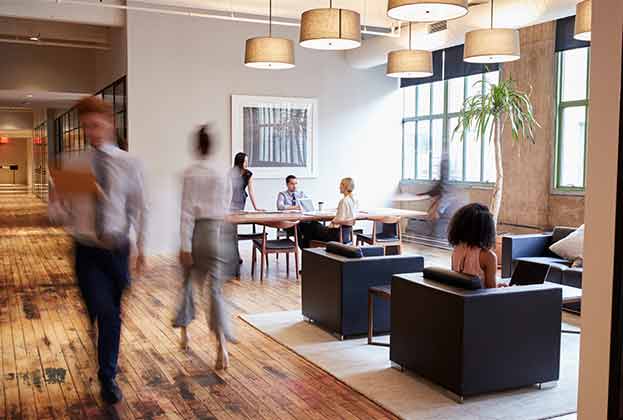What are the latest operator trends and how are they reacting to new customer requirements?
Although we observed a number of office trends prior to 2020, the pandemic has brought the role of the workplace to the agenda and operators are reacting to the new requirements from workers.
Reducing the possibility of virus outbreaks in offices was the top priority for businesses. Increased haptic technology has become one of the more widely implemented changes in the initial aftermath of the pandemic, with touch-free technology enabling workers to feel safer within the workplace. Some operators have introduced UV light into workplaces to disinfect the workplace. Rzero, for example, has developed a UV disinfection to destroy over 99% of pathogens and reduce the possibility of workplace infections. Similarly, Zoono fogging leaves a mono-molecular layer that bonds to the surface, creating a barrier of positive charged microscopic pins, which pierces pathogens and lasts for up to 30 days.
Investing in new workplace technology including curved monitors and workplace sensors will help improve workplace experience and inclusion and provide occupiers with more visibility over how their workspace is being used.
Landlords are shifting to more collaborative space and implementing more event space for half-day use as a result. Some companies are now looking for more bespoke fit outs to optimise the experience, for which they are ultimately willing to pay more for.
Operators have reported that companies are not seeking flex offices for monthly flexibility in their licences- private offices tend to opt for flex as they can sign for around two years and renew. Likewise, companies are seeking shorter lead in periods and a service that is ready to go within 4–6 weeks of signing, rather than the 12–24 month lead in time on conventional space. Speed and ease to occupation for the occupier are arguably the critical factors.
Mike Barnes, Savills Research discusses the flexible office market outlook with operators including; Chris Davies, CEO, Uncommon; Paul Rostas, Co-CEO, Plus X; Zach Douglas, CEO, Orega; Rupert Dean, Co-founder, X+Why; Enrico Sanna, CEO, FORA; Natasha Guerra, CEO, Runway East; Niki Fuchs, Managing Director, Office Space in Town and Dan Zakai, CEO, Mindspace.
1) How are occupier requirements changing as a result of the pandemic?
Chris Davies, Uncommon: “Companies are realising that they will need to sign for more experiential space to create a more inspirational workplace environment and enhance workplace productivity to encourage workers back.”
Niki Fuchs, Office Space In Town: “We initially observed a drop off in demand from the tech sector although this seems to have recovered now. The larger corporates continue to renew their licences.”
Zach Douglas, Orega: “Companies value both having their own front door and the ability to interact with other companies. Since the pandemic, we are seeing rising demand for high-quality meeting space and alternative work points within our flex spaces throughout different parts of the day.”
Dan Zakai, CEO, Mindspace: "We will continue to see occupiers become increasingly sophisticated in their demands and occupancy needs – notably for flex space. This, in turn, will drive more and more landlords to innovate and embrace emerging business models. Tenant needs haven’t changed as dramatically as their expectations and demands have changed. In the past, no one expected the building experience to play such a key role in day-to-day employee life. Now we understand that the building experience is the customer experience."
Natasha Guerra, Runway East: “We are seeing more interest in services and features that help them to distinguish themselves and enhance their offering for employees. Roof terraces, on-site social events, bike storage, desk reservations and so on are becoming more popular.”
2) What sorts of occupiers are looking to increase exposure to flexible offices?
Rupert Dean, XandWhy: “We have seen a range of occupiers using our spaces to trial new ways of working from pay as you use meeting rooms to two days a week in our private offices. Typically though, those coming in full time and looking to increase exposure have been small- to medium-sized going through significant growth or bounce back (from initial Covid impact). Everyone is wanting short term flexibility as well as spaces to get together/convene but also quieter individual spaces to escape and focus.”
Natasha Guerra, Runway East: “Traditionally, our key audience is made up of tech companies with under 20 employees who are looking for a flexible space to grow. However, we’re increasingly seeing larger companies looking either to downsize their space or get a more flexible solution for a subset of their team.”
Dan Zakai, CEO, Mindspace: "Where flex was once more for large technology companies, our member base has diversified significantly and we have occupiers from the media, financial, aviation, cyber-security, health and wellness industries."
Chris Davies, Uncommon: “We are seeing larger, listed companies adopting flex space. Private suites will help to shape company culture, and there is rising demand for larger listed companies with the benefits of creative private workspace and amenity-rich shared facilities.”
Paul Rostas, Plus X: “Curated collaboration is a key part of what we do and introducing companies to the right contacts is how we help businesses to unlock growth potential through our innovation hubs. Start-ups, scale-ups and larger corporates complement each other and help nurture our business ecosystems.”
3) What are the service-led features you are looking to incorporate to your flexible offices? What are customers demanding?
Rupert Dean, XandWhy: “We are seeing a higher number of typically “conventional” office tenants seek a more managed or bespoke serviced space for more flexibility. In addition, I think larger companies are unwilling to pay for significant CapEx in their own leased offices, love our designed spaces but still want to put some of their own finishing touches in. Finally, companies really just want total flexibility and adaptability in length of term and type of contract but also a single point of contact for all their office requirements.”
The need to create different settings for different use cases and behaviours has forced, in a positive manner, Fora to create a series of new and complementary products from our tailored office to team passes
Enrico Sanna, Fora
Paul Rostas, Plus X: “Our Innovation hubs are designed to maximise local strengths and skills with state of the art facilities and experts on hand to help ambitious businesses. In some cases, that might be recording your podcast in our state of the art media suites, and in others, it might be collaborating with our dedicated workshop team to prototype your latest product in our heavy-duty workshop.”
Natasha Guerra, Runway East: “We have seen a slight shift to more meeting rooms (particularly smaller meeting rooms with improved technology), more phone booths and breakout areas. Customers want the full-service offering with full custom fit-outs.”
Niki Fuchs, Office Space In Town: “We have introduced new technology into our meeting rooms to improve the experience and engagement for hybrid and implemented podcast facilities for our customers. All of our members are now able to make use of our free desk booking app which enables clients to book desks within their private offices to assist with managing new hybrid working practices, planning collaboration of teams and manage social distancing where required.”
Dan Zakai, CEO, Mindspace: "Companies are reluctant to make long term decisions and renew their leases or sign new ones. This puts pressure on landlords to allow for more flexibility and shorter leases and we do see some landlords reacting to that.
"We believe the main focus should be on offering a better experience, enabled through technology. There are various ways to implement these technologies, and it starts with the basics such as IT services, communication channels, dedicated apps, etc. As far as the pandemic goes, it certainly wasn’t what drove the implementation of the latter, as we’ve been offering this for years."
4) How are flex licence structures changing as a result of the pandemic?
Zach Douglas, Orega: “We have observed a growth in larger flex requirements, with some conventional tenants looking to get out of their existing leases as businesses move to adapt towards new working patterns and styles to encourage staff back to a more collaborative environment. Many companies are unable to plan for a longer period and see the five-year lease as an eternity – instead, they are opting for more flexible terms.”
We have introduced new technology into our meeting rooms to improve the experience and engagement for hybrid and implemented podcast facilities for our customers
Niki Fuchs, Office Space In Town
Enrico Sanna, Fora: “What the pandemic has demonstrated is something we have always believed – the workplace is a business-critical destination that should be fit for purpose. Our existing and potential Residents are looking for more flexible and tailored solutions and we can cater to their evolving needs. This has translated into some compelling trends for our sector. Flex structures and terms are becoming more tailored and longer and seen as a true competition to a traditional lease. The number of organizations considering flex is also growing as they begin to consider it as a meaningful part of their overall real estate strategy. Finally, the need to create different settings for different use cases and behaviours has forced, in a positive manner, Fora to create a series of new and complementary products from our tailored office to team passes.”
Rupert Dean, XandWhy: “Companies want to be able to take office space with a shorter lead in period, and want the transition period from their previous space to be short and straight-forward.”
Niki Fuchs, Office Space in Town: “Our Adjust service provides companies with a guaranteed term for office space but only for the days they choose, from a minimum of two days per week. Customers now have more flexibility over the days they want to be in the office on a more cost-effective basis. However, at the other end of the scale, we are finding that clients are looking for longer terms on their licences with their rents and increases guaranteed for the term.”
5) What are your target areas for expansion?
Natasha Guerra, Runway East: “We see opportunity for expansion outside of London. Oxford, for example, is an attractive potential destination with a large, skilled talent pool and high-growth ecosystem.”
Zach Douglas, Orega: “We remain true to our strategy, we believe geography to be a key decision making factor in any office decision complemented by ease of access. Each centre has to be accessible either by good public transport, or have adequate parking/bike rack facilities to make it convenient for people to come back to the workplace.”
Chris Davies, Uncommon: “London will remain the UK’s employment hub and we expect to see above-average economic growth as that is where international talent wants to be based.”
Paul Rostas, Plus X: “We believe talent is everywhere but opportunity is not and so we are partnering with local leaders and property partners in regions throughout the UK to create an innovation ecosystem designed to encourage collaboration. This approach means we enable local talent, increase skills, and create more job opportunities so that people can stay in their local community.”
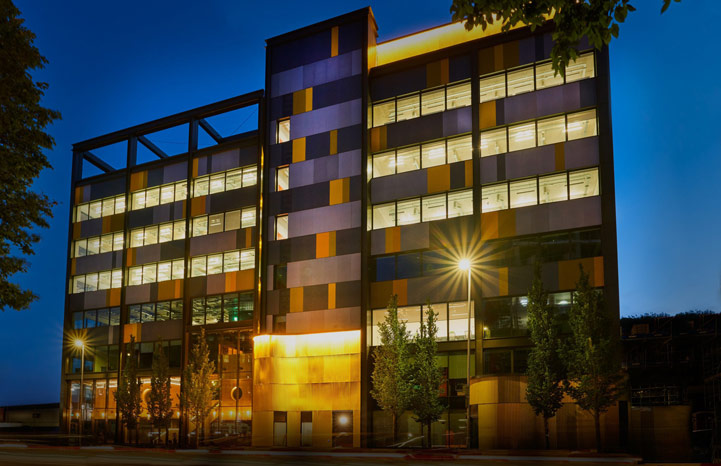
Plus X, Brighton
6) How are you incorporating ESG criteria into your schemes?
Enrico Sanna, FORA: “Earlier this year, we announced our commitment to operate on a net zero carbon emissions basis by 2030. To bring this plan to life, we are making climate-conscious decisions for our buildings, and are educating ourselves and our Residents through our series of sustainable events. Terra {Fora}, for example, offers a platform for Residents and experts to discuss ideas, tools, and resources that enable climate action. We are also collaborating to scale our impact by partnering with initiatives such as Bee1, a beehive conservation project. Introducing 12 managed hives at our very own Folgate Site where we are caring for over half a million bees, which will, in turn, pollinate 2.4 billion plants annually. We will also welcome local schools into our spaces for biodiversity and beekeeping workshops, aiming to engage and encourage the next generation to protect natural habitats and species long-term.”
Zach Douglas, Orega: “We have a number of initiatives in progress, one we are currently rolling out is removing single-use plastics from our operations. We have appointed an ESG consultant on ways we are able to further incorporate renewable energy supplies to our schemes.”
Natasha Guerra, Runway East: “Green credentials have become more important for tenants, and more customers are asking to split their energy meters in our buildings. We’re actively looking at becoming a BCorp over the next few months.”
Read the articles within Spotlight: UK Flex Office Perspectives below.
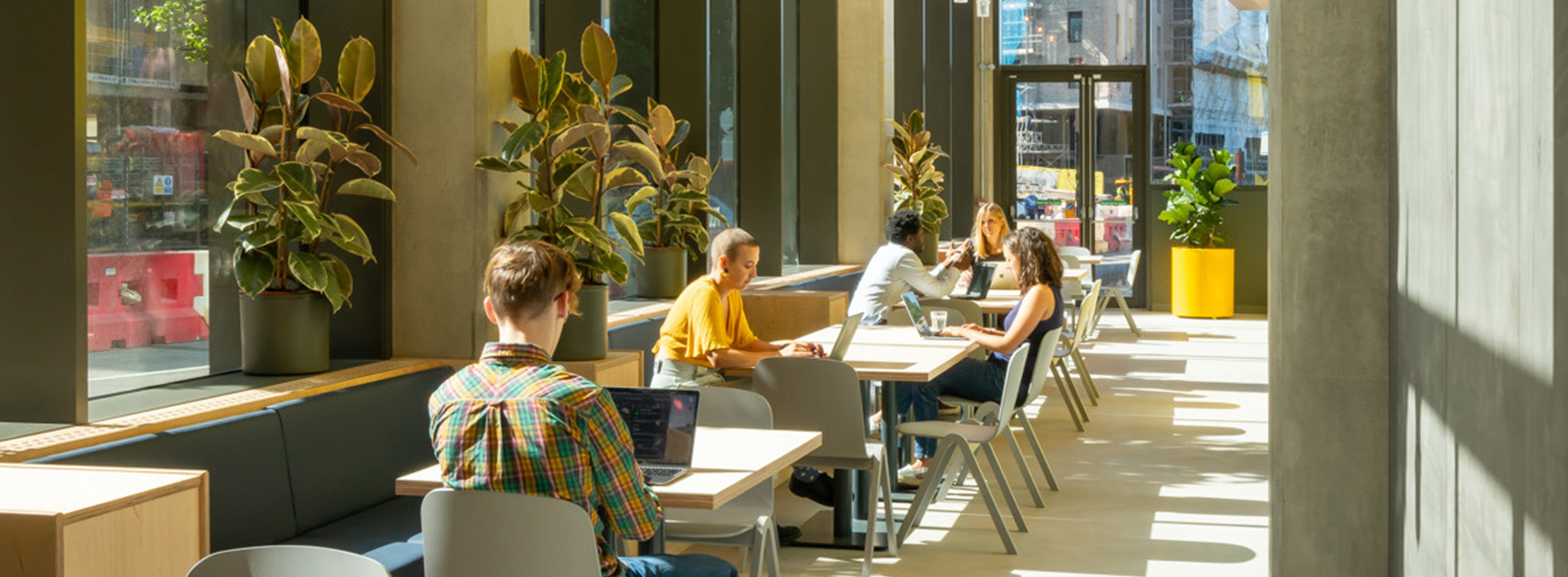
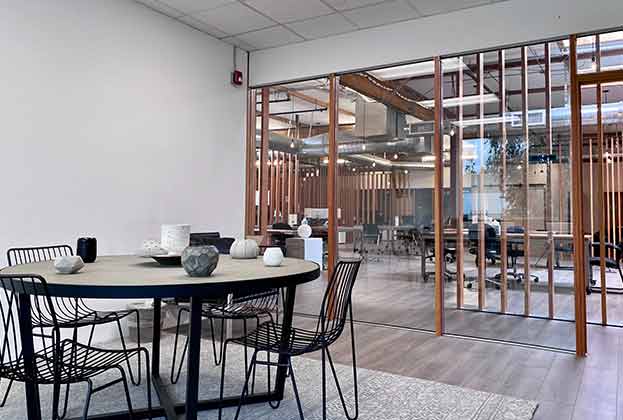
.jpg)
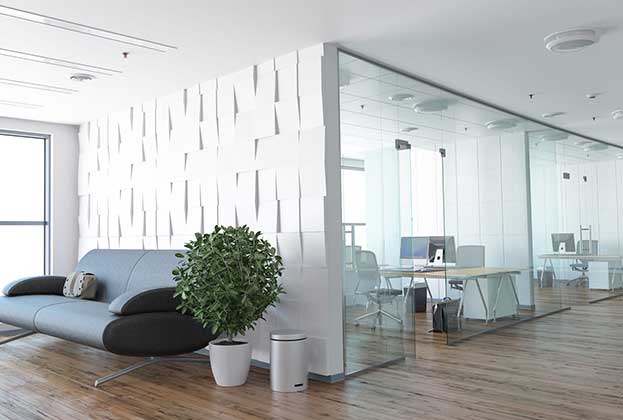

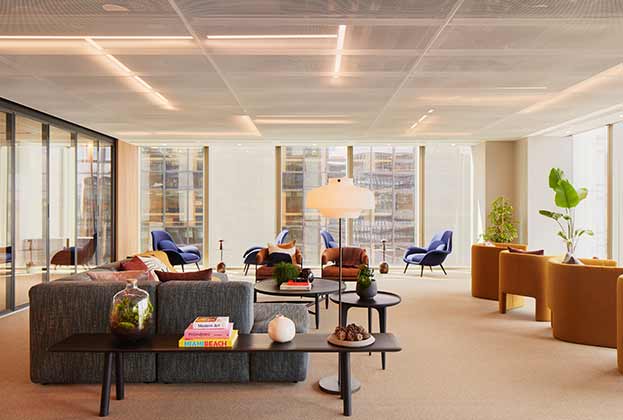
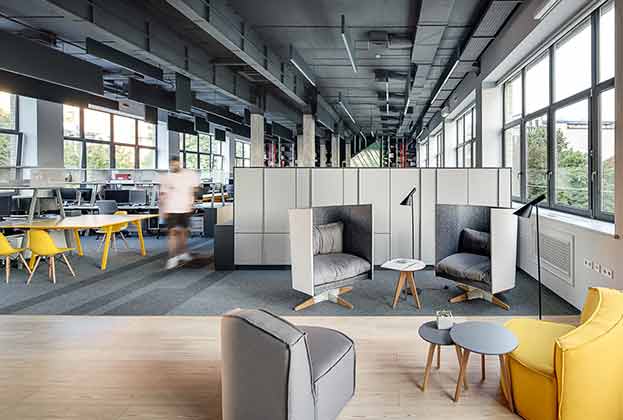
.jpg)


